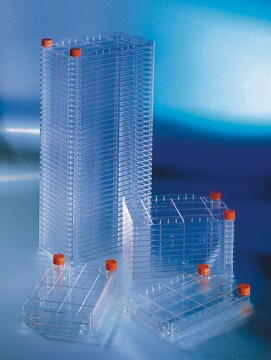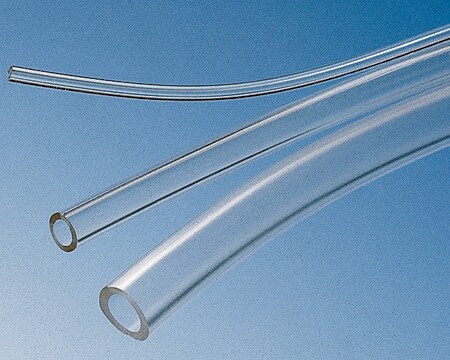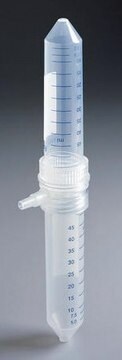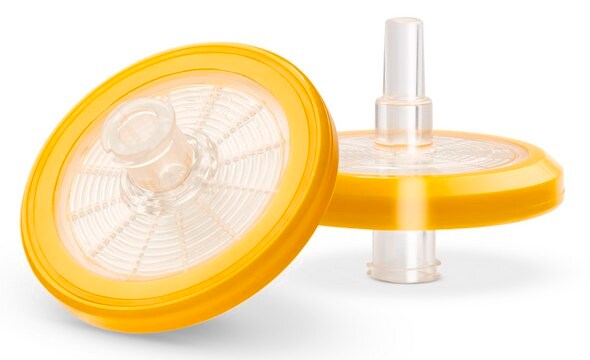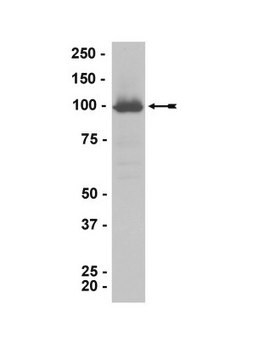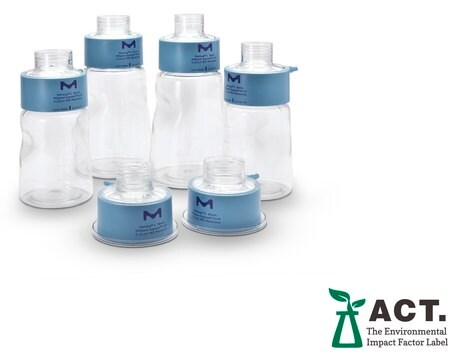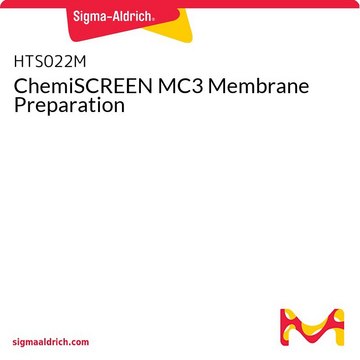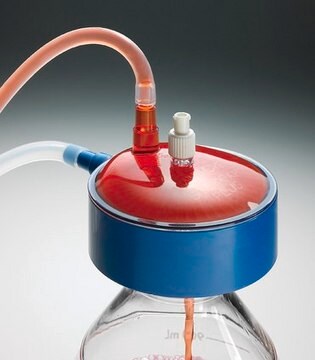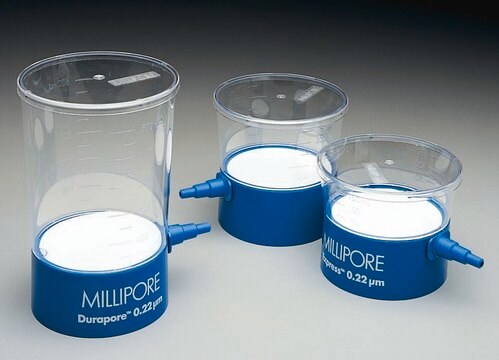HTS039M
ChemiSCREEN Membrane Preparation Recombinant Human D2 Dopamine Receptor
Human D2L GPCR membrane preparation for Radioligand binding Assays & GTPγS binding.
Sign Into View Organizational & Contract Pricing
All Photos(2)
About This Item
UNSPSC Code:
41106514
eCl@ss:
32161000
NACRES:
NA.84
Recommended Products
biological source
human
Quality Level
recombinant
expressed in Chem-1 cells
manufacturer/tradename
ChemiScreen
Chemicon®
technique(s)
ligand binding assay: suitable (GTPγS)
radioligand binding assay (RLBA): suitable
NCBI accession no.
UniProt accession no.
shipped in
dry ice
General description
Dopamine is a catecholamine neurotransmitter that functions in the CNS to control locomotor, cognitive, emotional and neurendocrine processes, and in the periphery to modulate cardiovascular, renal and gastrointestinal processes. The biological activities of dopamine are mediated by a family of five GPCRs. The D1 and D5 subtypes couple to Gs to increase intracellular cAMP, whereas the D2, D3 and D4 subtypes couple to Gi to reduce cAMP (Missale et al., 1998). The D2 dopamine receptors have been of particular clinical interest due to their regulation of prolactin secretion and their affinity for antipsychotic drugs. The D2 receptor exists as two alternatively spliced isoforms differing in the insertion of a stretch of 29 amino acids in the third intracellular loop (D2S and D2L) (Giros et al., 1989; Grandy et al., 1989). Millipore′s D2 dopamine membrane preparations are crude membrane preparations made from our proprietary stable recombinant cell lines to ensure high-level of GPCR surface expression; thus, they are ideal HTS tools for screening of antagonists of D2 dopamine receptor interactions with its ligand. The membrane preparations exhibit a Kd of 0.51nM for [125I]-Iodospiperone. With 5.0 ug/well D2 Dopamine Membrane Prep and 0.1nM [125I]-Iodospiperone, a greater than 10-fold signal-to-background ratio was obtained.
Human Dopamine Receptor 2
Application
Radioligand binding assay and GTPγS binding
Biochem/physiol Actions
GPCR Class: A
Protein Target: D2L
Target Sub-Family: Dopamine
Quality
Table 1. Signal:background and specific binding values obtained in a competition binding assay with varying amounts of Dopamine Receptor membrane prep.
SPECIFICATIONS: 1 unit = 5.0 µg membrane preparation
Bmax: 6.03 pmol/mg
Kd: 0.51 nM
| 10 µg/well | 5 µg/well | |
|---|---|---|
| Signal:Background | 23.6 | 27.5 |
| Specific Binding (cpm) | 8331 | 9927.2 |
Bmax: 6.03 pmol/mg
Kd: 0.51 nM
Specifications
Inucbation Conditions
Membranes are mixed with radioactive ligand and unlabeled competitor (see Figures 1 and 2 for concentrations tested) in binding buffer in a nonbinding 96-well plate, and incubated for 1-2 h. Prior to filtration, an FC 96-well harvest plate (Millipore cat. # MAHF C1H) is coated with 0.33% polyethyleneimine for 30 min, then washed with 50mM Tris, pH 7.4. Binding reaction is transferred to the filter plate, and washed 3 times (1 mL per well per wash) with Wash Buffer. The plate is dried and counted.
Binding buffer: 50 mM Tris, pH 7.4, 120mM NaCl, filtered and stored at 4°C
Radioligand: [125I] Iodospiperone (Perkin Elmer # NEX284)
Wash Buffer: 50 mM Tris, pH 7.4, filtered and stored at 4°C.
Membranes are mixed with radioactive ligand and unlabeled competitor (see Figures 1 and 2 for concentrations tested) in binding buffer in a nonbinding 96-well plate, and incubated for 1-2 h. Prior to filtration, an FC 96-well harvest plate (Millipore cat. # MAHF C1H) is coated with 0.33% polyethyleneimine for 30 min, then washed with 50mM Tris, pH 7.4. Binding reaction is transferred to the filter plate, and washed 3 times (1 mL per well per wash) with Wash Buffer. The plate is dried and counted.
Binding buffer: 50 mM Tris, pH 7.4, 120mM NaCl, filtered and stored at 4°C
Radioligand: [125I] Iodospiperone (Perkin Elmer # NEX284)
Wash Buffer: 50 mM Tris, pH 7.4, filtered and stored at 4°C.
Physical form
One package contains enough membranes for at least 200 assays (units), where an unit is the amount of membrane that will yield greater than 10-fold signal:background with [125I]-labeled Iodospiperone at 0.1 nM.
Liquid in packaging buffer: 50 mM Tris pH 7.4, 10% glycerol and 1% BSA with no preservatives.
Packaging method: Membranes protein was adjusted to the indicated concentration in packaging buffer, rapidly frozen, and stored at -80oC.
Liquid in packaging buffer: 50 mM Tris pH 7.4, 10% glycerol and 1% BSA with no preservatives.
Packaging method: Membranes protein was adjusted to the indicated concentration in packaging buffer, rapidly frozen, and stored at -80oC.
Storage and Stability
Maintain frozen at -70°C for up to 2 years. Do not freeze and thaw.
Legal Information
CHEMICON is a registered trademark of Merck KGaA, Darmstadt, Germany
Disclaimer
Unless otherwise stated in our catalog or other company documentation accompanying the product(s), our products are intended for research use only and are not to be used for any other purpose, which includes but is not limited to, unauthorized commercial uses, in vitro diagnostic uses, ex vivo or in vivo therapeutic uses or any type of consumption or application to humans or animals.
Storage Class
12 - Non Combustible Liquids
wgk_germany
WGK 2
flash_point_f
Not applicable
flash_point_c
Not applicable
Certificates of Analysis (COA)
Search for Certificates of Analysis (COA) by entering the products Lot/Batch Number. Lot and Batch Numbers can be found on a product’s label following the words ‘Lot’ or ‘Batch’.
Already Own This Product?
Find documentation for the products that you have recently purchased in the Document Library.
C Missale et al.
Physiological reviews, 78(1), 189-225 (1998-02-11)
The diverse physiological actions of dopamine are mediated by at least five distinct G protein-coupled receptor subtypes. Two D1-like receptor subtypes (D1 and D5) couple to the G protein Gs and activate adenylyl cyclase. The other receptor subtypes belong to
B Giros et al.
Nature, 342(6252), 923-926 (1989-12-21)
Dopamine receptors are classified into D1 and D2 subtypes on the basis of their pharmacological properties and the intracellular responses they mediate. The cerebral D2 dopamine receptor is the target of drugs used to alleviate the main symptoms of schizophrenia.
Our team of scientists has experience in all areas of research including Life Science, Material Science, Chemical Synthesis, Chromatography, Analytical and many others.
Contact Technical Service